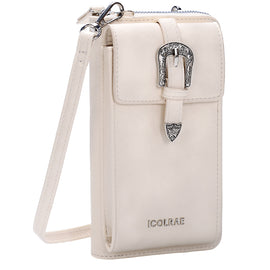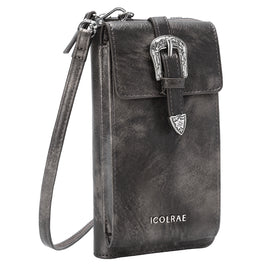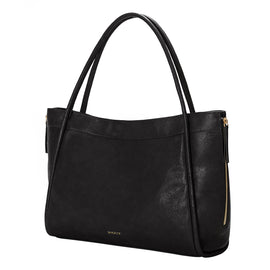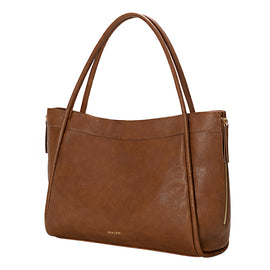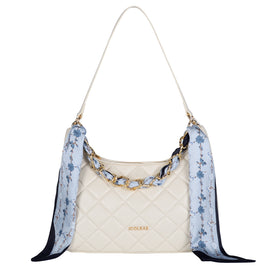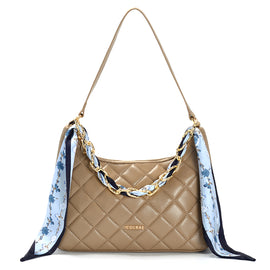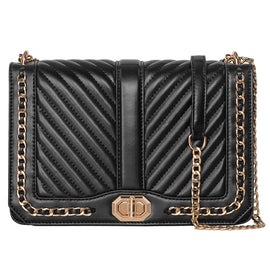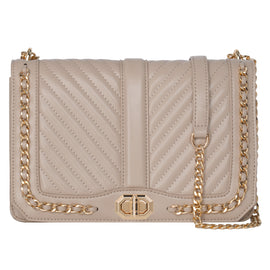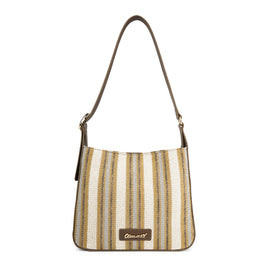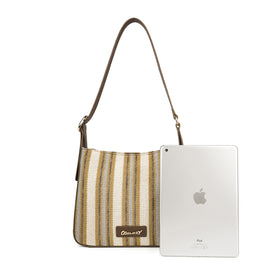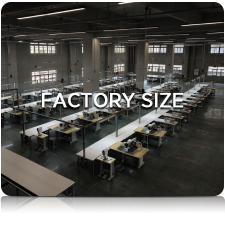Key Quality Checkpoints for Bag Sampling
Introduction
In the world of custom leather bag manufacturing, sampling is far more than just the first step of production—it’s the foundation of quality assurance. A well-executed sample represents how your final product will look, feel, and perform. For brands and retailers, understanding the importance of the sampling stage can prevent costly mistakes, save time, and ensure that every bag meets the expected standard.
At HerminFashion, we treat the sampling process as a vital checkpoint for both design perfection and quality validation. Let’s explore why bag sampling matters, what quality inspections are involved, and how partnering with a reliable manufacturer can make all the difference.
Why Sampling Matters in Leather Bag Production
When developing a custom leather bag, sampling acts as the bridge between design and mass production. It’s during this phase that concepts are tested, details are refined, and materials are validated.
Here are several key reasons why sampling is essential:
-
Ensures Accuracy of Design: Sampling verifies that the bag’s design, proportions, and structure match the original concept or prototype drawings.
-
Validates Material Quality: From leather texture to lining, sampling confirms whether the chosen materials deliver the right durability and aesthetic.
-
Identifies Potential Defects Early: Detecting issues such as uneven stitching, color variation, or hardware misalignment before mass production prevents large-scale losses.
-
Improves Cost Efficiency: Sampling allows both the client and manufacturer to adjust specifications, avoiding unnecessary production expenses.
In short, sampling is a risk-control mechanism—it ensures that every detail aligns with brand standards before hundreds or thousands of units are produced.
Common Quality Checkpoints During Bag Sampling
A professional sampling process involves multiple checkpoints that evaluate craftsmanship, material performance, and finishing. Here are the seven most crucial aspects HerminFashion and top-tier manufacturers focus on:
-
Material Verification
The leather or fabric must meet the required thickness, color consistency, and surface texture. A sample ensures the supplier uses authentic materials rather than substitutes. -
Color Accuracy
Every batch of leather may slightly differ in hue. The sampling phase includes color-matching tests to maintain consistency across the final products. -
Stitching and Construction
The sample checks the uniformity of stitching—both in distance and strength. Uneven stitching is a red flag that needs correction before full production. -
Hardware Quality
Zippers, buckles, clasps, and metal logos must not only look premium but also function smoothly. Rust tests and stress tests are performed to confirm longevity. -
Structural Durability
The sample bag undergoes load and tension tests to ensure the handles, straps, and seams can withstand daily use. -
Functional Testing
All compartments, zippers, and closures are checked for practical usability. A bag that looks good but isn’t functional will harm the brand’s reputation. -
Finishing and Cleanliness
Surface polishing, edge painting, and logo embossing are inspected for uniformity. Even minor imperfections can significantly affect the brand’s perceived value.
Popular Inspection Methods in Sampling
To maintain strict quality standards, manufacturers employ several types of inspection techniques during the sampling phase:
-
Visual Inspection – Detects obvious flaws like scratches, color inconsistency, or stains.
-
Dimensional Inspection – Measures key parameters like bag height, width, and pocket depth to ensure precision.
-
Material Testing – Evaluates the tensile strength and water resistance of leather or synthetic materials.
-
Functional Inspection – Ensures zippers, buttons, and straps work smoothly and can endure repeated use.
By combining these inspection methods, manufacturers can guarantee that every detail of the sample meets both the brand’s and the end consumer’s expectations.
Why Reliable Suppliers Make All the Difference
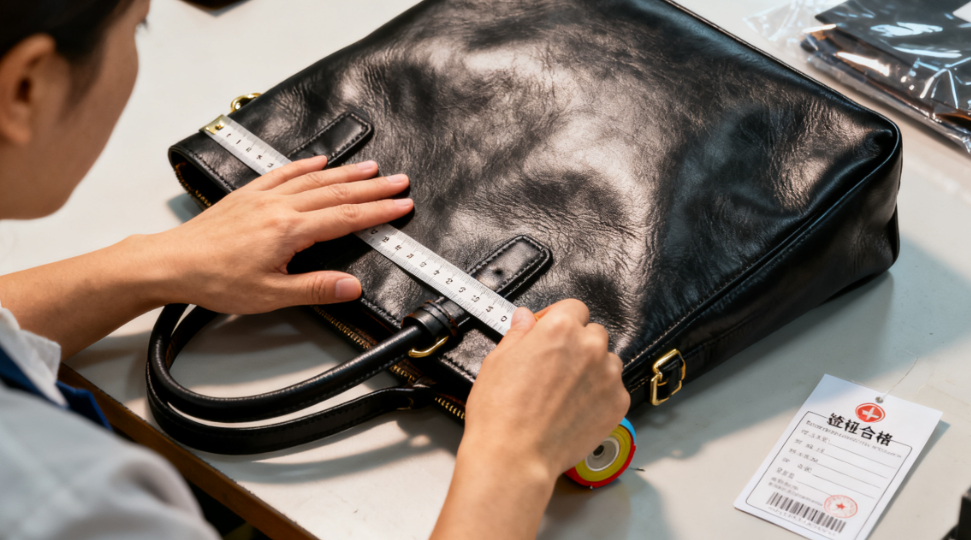
Even the best design cannot succeed without a manufacturer who values precision and communication. Choosing a reliable supplier like HerminFashion ensures that the sampling process runs smoothly—from prototype development to final approval.
Here’s what makes HerminFashion stand out:
-
Professional OEM/ODM experience with over a decade of craftsmanship expertise.
-
Rigorous multi-step inspection process at every sampling and production stage.
-
Efficient sample revisions—our team quickly adjusts designs based on client feedback.
-
Material sourcing expertise, helping clients balance luxury and affordability.
-
Collaborative design support to turn creative sketches into market-ready handbags.
By ensuring your sampling stage is handled by professionals, you safeguard your entire production investment.
Conclusion
Sampling is not a mere formality—it’s a strategic quality checkpoint that defines the success of your leather bag line. Through detailed inspections, material validation, and functionality testing, you can ensure that every bag produced represents your brand’s commitment to quality.
At HerminFashion, we don’t just make bags—we help you build a reputation for excellence. From the first sample to the final shipment, we’re your trusted partner in creating durable, beautiful, and brand-defining handbags.

